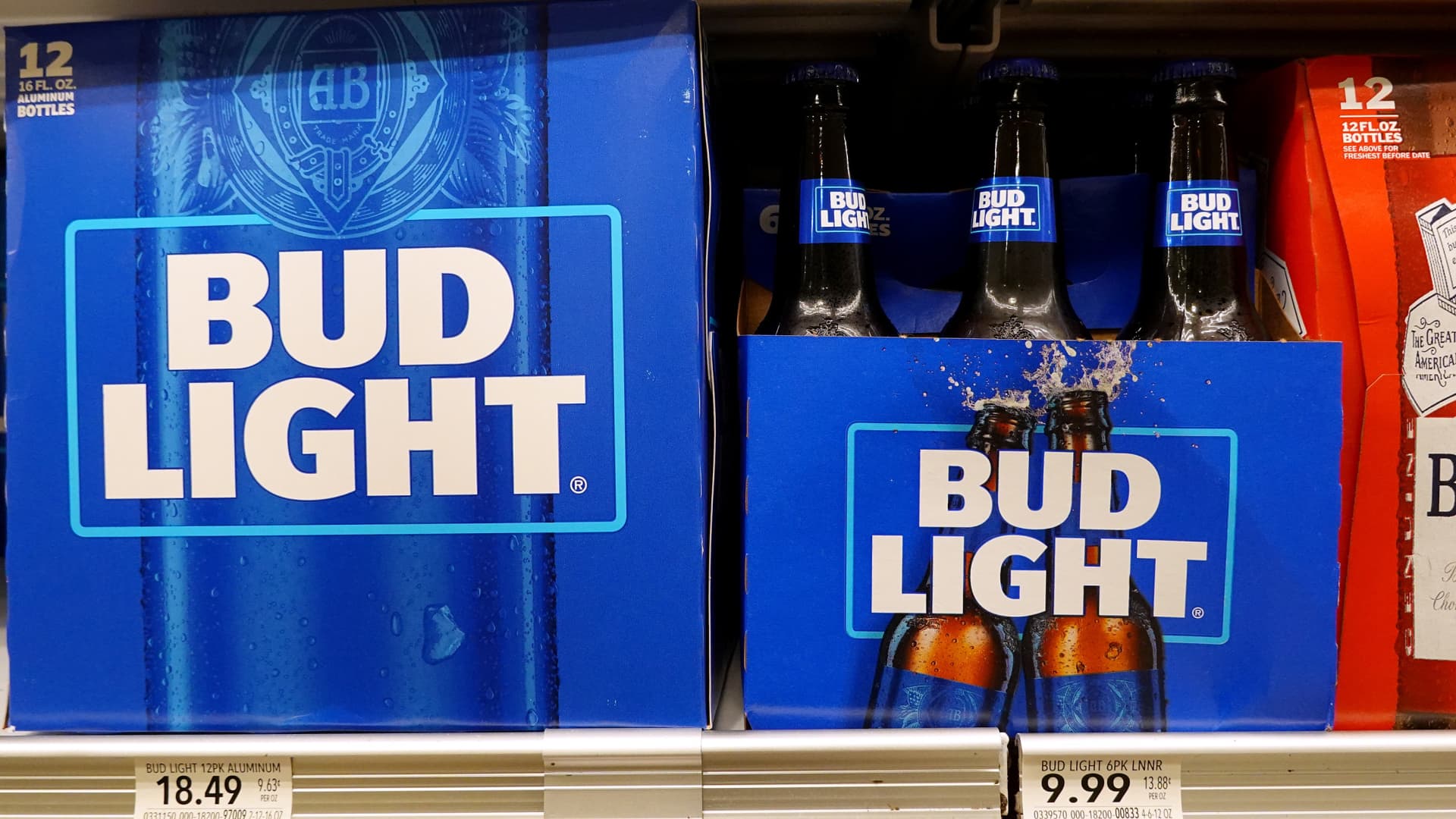
It wasn’t just Bud Light.
The past year saw the lowest level of beer consumed in the U.S. in a generation, according to industry group Beer Marketer’s Insights, as consumers shifted away from traditional favorites to other forms of alcohol — and in a growing number of cases, avoiding alcoholic beverages altogether.
“It was a tough year for beer,” said David Steinman, BMI vice president and executive editor.
For the first time since 1999, he said, beer shipments were on track to fall below 200 million barrels.
Leading the decline, Steinman said, was Anheuser Busch. But while the Bud Light maker caught headlines over a sponsorship agreement with transgender influencer Dylan Mulvaney that subsequently led to a boycott among some longtime drinkers, the protest does not explain why overall consumption still managed to fall, Steinman said.
Instead, Anheuser Busch was at the forefront of an acceleration in the long-term decline of so-called domestic-premium brands, which include Bud Light and rivals Miller Light and Coors Light, Steinman said. Anheuser Busch, owned by global conglomerate AB InBev, also suffered from a decline in hard seltzers — a category in which it has long dominated.
The beer industry also now finds itself competing against a surge of new alcohol products, many from non-traditional producers, said Lester Jones, vice president, analytics and chief economist at the National Beer Wholesalers Association.
“For example, some of the world’s largest soft drink and energy companies introduced sugar-forward alcohol beverages to the market, all of which are vying for the same consumer occasions as traditional malt- and hop-forward products,” he said in an email.
Yet even as overall volume consumption declined, the largest beer makers remain financially resilient thanks to prices that climbed alongside — or even surpassed — broader inflation, Steinman said. Beer drinkers also continued to shift toward more expensive beer brands, especially imports like Modelo Especial, which became the No. 1 beer in America in 2023.
And beer sales in other parts of the world continue to remain strong, Steinman said.
“With prices going up, dollar sales have continued to grow and profits have been rising,” he said.
Still, significant headwinds remain. The craft-beer boom of the 2010s has petered out, and there are now so many varieties of alcoholic beverages available that the consumer may now be overwhelmed.
“The U.S. beer industry had a wild ride in 2023 against the backdrop of an expanding economy that created more jobs and wage gains for many people, as well as an oversupplied alcohol marketplace that saw a rapid influx of new products,” Jones said.
